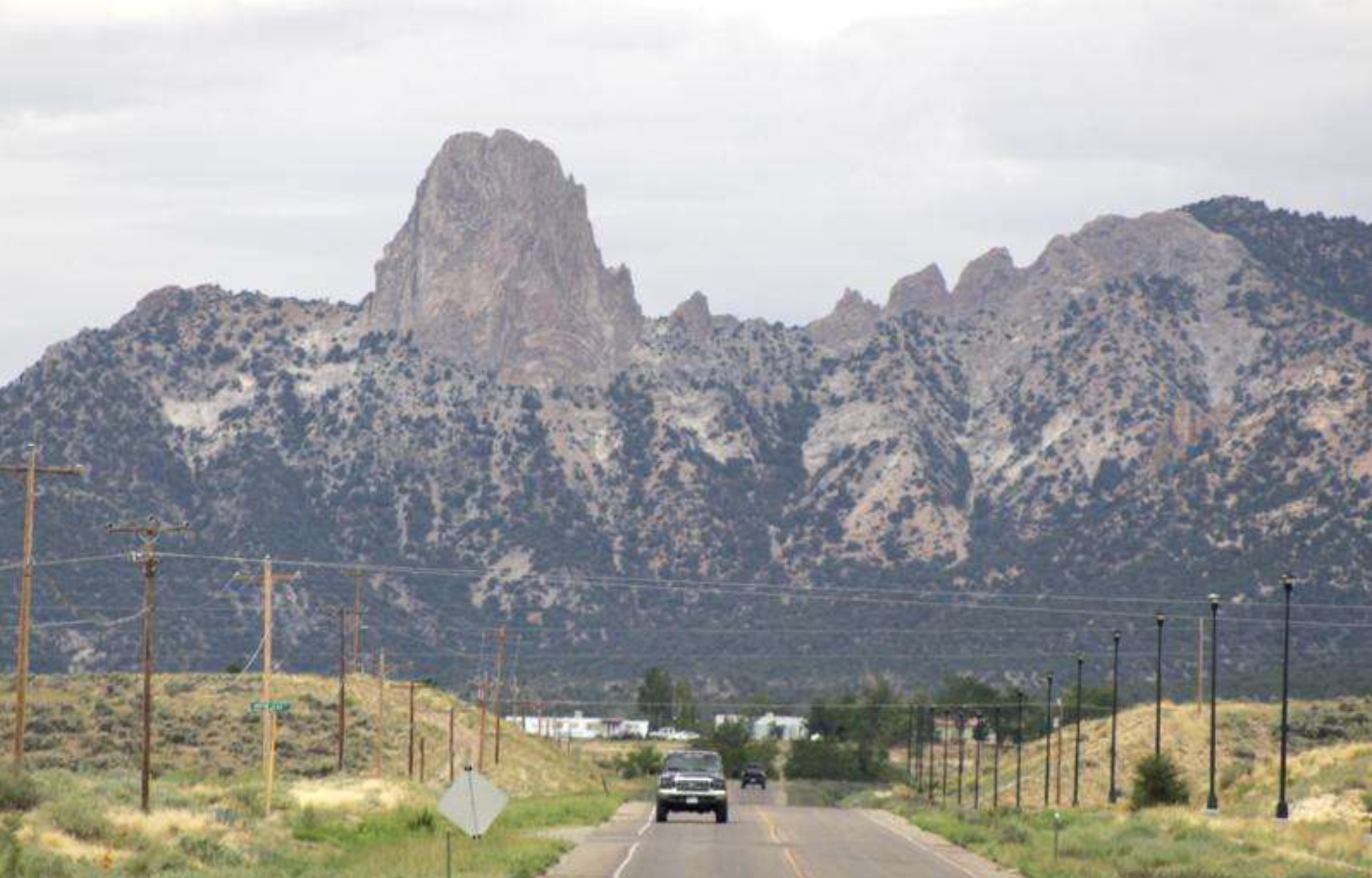Ute Mountain language gets revival with voiced dictionary
Tribe chairman: Dictionary will ‘fill in the gap from the boarding school era’
Kala Parkinson | The Durango Herald | November 21, 2021

The Ute Mountain Ute Tribe launched a spoken-word dictionary last week that aims to reinvigorate the tribe’s native Shoshonean language with pronunciation from tribal elders.
TOWAOC – Transference of the Ute Mountain Ute language has dwindled, marred by forced assimilation and elders’ deaths — but the tribe is hopeful that will change with the launch of a new spoken-word dictionary.
The Uto-Aztecan language, Shoshonean, is steeped in oral tradition, but has faced pressure – particularly from a period of time when it was common for Ute Mountain Utes to attend boarding schools. In those schools, their native language wasn’t used, and tribal members were expected to assimilate, said Ute Mountain Ute Chairman Manuel Heart.
The dictionary will help to “fill in the gap from the boarding school era,” – the effects of which are still felt today, he said.
It’s estimated that there are now only a little over 110 Ute Mountain Utes fluent in the language, according to a press release.
The free dictionary – released Thursday at a community event – isn’t the first for the tribe. However, it’s the most comprehensive pronunciation guide yet, narrated by 21 tribal elders to assist with learning.
The language preservation endeavor blends tradition and modernity, and the dictionary is available as a mobile application on iOS and Android devices.
“We decided to create something that helps our children who are not knowledgeable about the language,” Heart said.
Over 10,000 words are recorded, said Juanita PlentyHoles, Tiwahe director and tribal member.
The Tiwahe Initiative in Towaoc is a local branch of a national operation that provides opportunities for Native American children, youths and families. It was established on the Ute Mountain Ute reservation in 2015, and the tribe is one of six in the nation to receive the funding, PlentyHoles said.
With changing times, PlentyHoles said elders like herself ask themselves: “What is going to be my contribution to our culture and our history?”
“Historical traumas” remain painfully palpable within the tribe, she said.
“With the historical things that happened – with our people being taken away to boarding schools and told that they can’t speak their languages anymore – that had a huge impact,” she said. “A lot of those people never passed on their languages to their children.”
Elders fluent in the language are dying, she said.
“For me, for us, it’s important because up to this point, all this stuff — our history, our language, our beliefs — all that was passed down from generation to generation verbally, and was the only only thing they spoke. There was no English up until the late 1800s,” she said.
Culture and language repeatedly surfaced as desired areas of future focus in Tiwahe planning sessions involving community input, PlentyHoles said.
“Our language is unique — our languages have a family of their own,” she said.
The spoken-language dictionary project, titled “Growing Utes,” was funded with a Living Languages Grant from the Bureau of Indian Affairs.
“When you look at something that’s linguistically written, it’s kind of hard to sound it out,” PlentyHoles said.
So, with the help of The Language Conservancy — an organization dedicated to Indigenous language revitalization — the tribe embarked on a preliminary round of recordings in 2019, resulting in 3,000 pronounced terms, funded by Tiwahe. At the beginning of this year, recording resumed with the Living Languages Grant.
Tiwahe and Ute Mountain Language and Culture Department members collaborated with TLC linguists to utilize Rapid Word Collection — an accelerated process for creating a language database.
A dictionary produced in the early 2000’s included some spoken word, but not to the extent of the revamped dictionary, Plentyholes said.
“All tribes across the United States kind of have a commonality as far as culture and cultural practices,” she said. “But we’re also unique in that we have certain things that other tribes don’t have.”
Whether the dictionary will be made available beyond the tribe is an ongoing discussion, PlentyHoles said.
“For now, that’s another debate,” she said. “Some of our people want it just for the community. And I understand that, because we want our kids to learn so that they can pass on. Everything we do is for the tribe. So, however the tribe wants to use it, that’s up to them.”
The spoken dictionary follows the launch of reservation school Kwiyagat Community Academy at the beginning of this school year. Considering the bleak boarding school era entwined in the tribe’s past, the new charter stands for much more than just the simple schooling of young Utes. It has brought education back to the reservation and aims to instill young minds with the foundations of Ute Mountain Ute culture and language. Departing from a conventional standardized testing model, the school lends more time to enrichment subjects like music.
“We just want to make sure that we’re doing things for our future,” PlentyHoles said.
The United Nations Educational, Scientific and Cultural Organization declared the decade beginning January 2022 to be the International Decade of Indigenous Languages.

